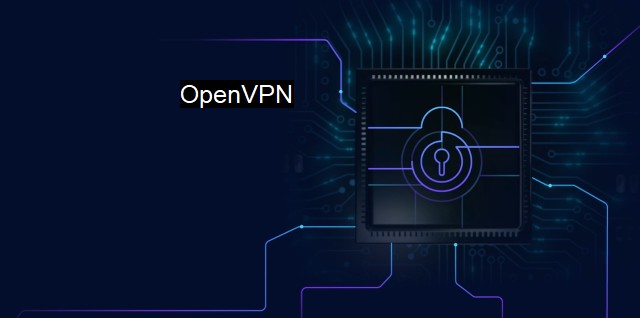What is OpenVPN?
The Ultimate Security Solution: Exploring the Trusted and Widely Used OpenVPN - The Industry-Standard VPN with Robust Security Features
OpenVPN is a well-respected software application that creates encrypted Virtual Private Networks (VPNs). OpenVPN plays a pivotal role in protecting data as it's transmitted over public networks. It has emerged as a popular and reliable choice among businesses and individuals looking for an effective solution to secure their intranets and their interaction with the internet in general.OpenVPN provides users with a safe mechanism to access a private local network remotely. Through an encrypted tunnel, it allows access to the internal network on which it's set up, thus upholding its status as a vital cybersecurity tool. Operating on almost any port and supports dynamic port forwarding, OpenVPN uses the latest encryption technology to protect data. This component is critically important in the context of antivirus, as it helps prevent malicious actors from gaining access and spreading malware.
It utilizes the SSL/TLS (Secure Sockets Layer/Transport Layer Security) protocol for key exchanges, enabling it to provide a high standard of security. The use of these protocols is secure enough that they're used to protect browsing activity, online transactions, and personal data worldwide. This defending aspect is what makes OpenVPN an entrustable application for both cybersecurity and antivirus purveyors.
One of the key advantages OpenVPN provides users is the flexibility of combining it with other protocols like TCP and UDP, enabling users to get over many firewall-related issues and heightening its competence in a robust cybersecurity mechanism. Therefore, no matter which suit of communication protocols the targeted private network is using, OpenVPN offers that flexibility to continue providing the safe communication bridge with the explicitly set encryption standards.
a user may employ multiple protocols together to acquire different levels of security benefits. For instance, TCP (Transmission Control Protocol) can be used when consistent and error-checked delivery of packets is vital, while UDP (User Datagram Protocol) can be used when a fast and efficient transmission is necessary without the need for error-checking.
An important element to note about OpenVPN lies in its extensive control and configuration options as compared to other VPN technologies. It provides users with an impressive gradient of options, thereby allowing a high degree of customization based on personal preferences or businesses’ unique requirements. Users can choose to have more speed or more security, change the encryption algorithm, control keys’ update frequency, obfuscate links, and many more combinations that boost usefulness in several contexts.
From an antivirus perspective, OpenVPN helps provide an encrypted tunnel for data flows. This secured tunnel minimizes the chance of data packets getting intercepted during transmission. Including the VPN as part of your cybersecurity strategy reduces the attack surface for would-be intruders, as it can serve as a safe house for your data.
Despite its high degree of security, the usage of OpenVPN doesn’t negate the need for an antivirus. The antivirus software scans the system files and acts like an immune system for your PC, alerting and protecting against harmful files, while the VPN such as OpenVPN ensures your online activities are kept private and anonymously hidden from outsiders lurking in the shadows of cyberspace, looking to breach networks and harvest data.
OpenVPN essentially provides a secure and encrypted bridge over the dangerous waters of public internet spaces. Its encryption technologies make it an extraordinary tool, firmly lodged in the armory of cybersecurity. Paired with a capable antivirus solution, OpenVPN can further provide comprehensive protection for data and online activity. It significantly contributes to assurance, safety, and trust in the vast, uncertain, and often dangerous cyberspace world.

OpenVPN FAQs
What is OpenVPN?
OpenVPN is an open-source virtual private network (VPN) software that allows you to create secure and encrypted connections over the internet. It is widely used in the cybersecurity industry for secure remote access to private networks and to hide internet traffic from hackers or surveillance.How does OpenVPN work?
OpenVPN uses a combination of technologies such as SSL/TLS encryption, key negotiation, and tunneling protocols to create a secure and private connection between two devices on the internet. It works by creating a virtual tunnel between the client and server, which encapsulates the data and sends it through the encrypted connection. This allows users to securely access resources on a remote network as if they were physically present on it.Is OpenVPN secure?
Yes, OpenVPN is considered one of the most secure VPN technologies available today. It uses strong encryption algorithms and advanced security protocols to protect data transmission and prevent unauthorized access. However, like any technology, OpenVPN can be vulnerable if not configured correctly or if users do not follow best security practices.Can antivirus software detect OpenVPN connections?
Antivirus software is not designed to detect OpenVPN connections directly. However, some antivirus programs may flag OpenVPN as a potential security risk if it detects suspicious network activity, such as a large number of encrypted connections, or if the VPN server IP address is blacklisted. It is important to ensure that your OpenVPN connections are properly configured to avoid any security issues.Related Topics
Virtual private network (VPN) Encryption Cybersecurity Firewalls Two-factor authentication (2FA)
| | A | | | B | | | C | | | D | | | E | | | F | | | G | | | H | | | I | | | J | | | K | | | L | | | M | |
| | N | | | O | | | P | | | Q | | | R | | | S | | | T | | | U | | | V | | | W | | | X | | | Y | | | Z | |
| | 1 | | | 2 | | | 3 | | | 4 | | | 7 | | | 8 | | |||||||